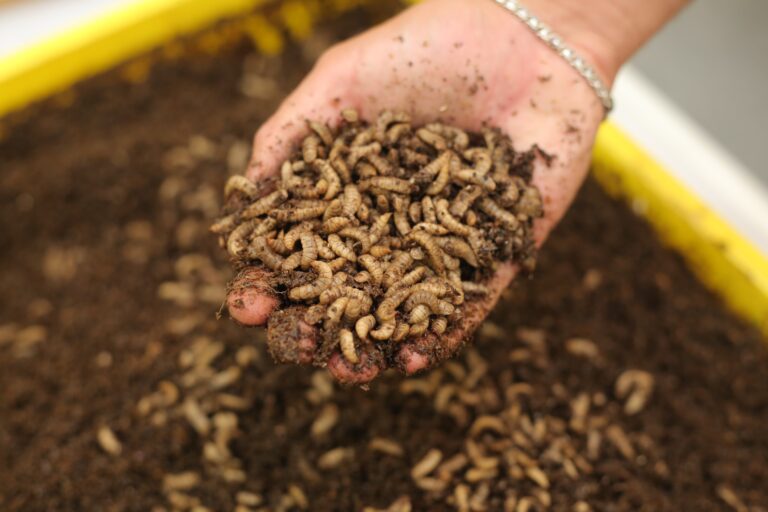Fly larvae will be fed food waste enhanced with minerals before being added to poultry feed as part of a new study by scientists at Nottingham Trent University and agri-tech company Flybox, which aims to increase the nutritional value of chickens and significantly reduce the carbon footprint of ingredients.
The research will involve fortifying black soldier fly larvae with essential minerals for nutrition such as zinc, iron, calcium and selenium.
As part of the two year £1m project – funded by UK Research and Innovation’s Biotechnology and Biological Sciences Research Council and Innovate UK – the larvae will then be added to grain for poultry before the research team evaluates the nutritional uptake in the birds.
It is expected that the approach will improve the nutritional value to consumers, as well as enhance the health and wellbeing of the birds.
Currently, farmed poultry diet is supplemented with protein such as soybean oil, but a worldwide protein shortage means this component in animal feed is increasingly financially and environmentally unstable and a pressing global issue.
The price of feed has increased by half in the last two years and demand is expected to double by 2050.
The project, which involves researchers from Nottingham Trent University’s School of Science and Technology and School of Animal, Rural and Environmental Sciences, will include the installation of a Flybox modular insect farm on the university’s Brackenhurst Campus.
This would be used for feeding the black soldier fly larvae with the food waste and nanomaterial.
The researchers will develop a nano-enhanced substrate with naturally occurring minerals and amino acids essential for poultry health. Elements are combined together at an atomic scale until they uniformly grow into a nanometre size. By utilising the minerals at this size the birds – and insects – can use and metabolise them more effectively.
Black fly soldier larvae meal is already being produced at a moderate-industrial scale, however, in the UK and Europe the use of insect meal is currently largely restricted to high profit margin niches in the petfood industry.
The researchers argue it is not reaching its full potential to be a sustainable and low-emission protein source for the livestock industry.
“We are circumventing having to use all the supplements currently required, which are expensive, in short supply and not environmentally-sustainable,” said Dr Gareth Cave, a researcher in Nottingham Trent University’s School of Science and Technology.
He said: “The insects are essentially loaded with nutrition from waste food products and this then becomes part of a natural diet for the poultry. Importantly, this is a hyper-local, circular and low-carbon way to address a serious challenge in the animal feed sector.”
Emily Burton, Professor in Sustainable Food Production in the university’s School of Animal, Rural and Environmental Sciences, said: “We see insect larvae as the key to circularising food production, so it is great to support a project aiming to optimise the production and use as poultry feed.”
Andrea Jagodic, co-founder & chief executive of Flybox, said: “This is an exciting route to positively influence unit economics for the entire insect protein industry. It is the right time to start integrating a precision agriculture approach when integrating insect meal into commercial feed. We look forward to collaborating with Nottingham Trent University to further unlock the potential of insect protein.”


